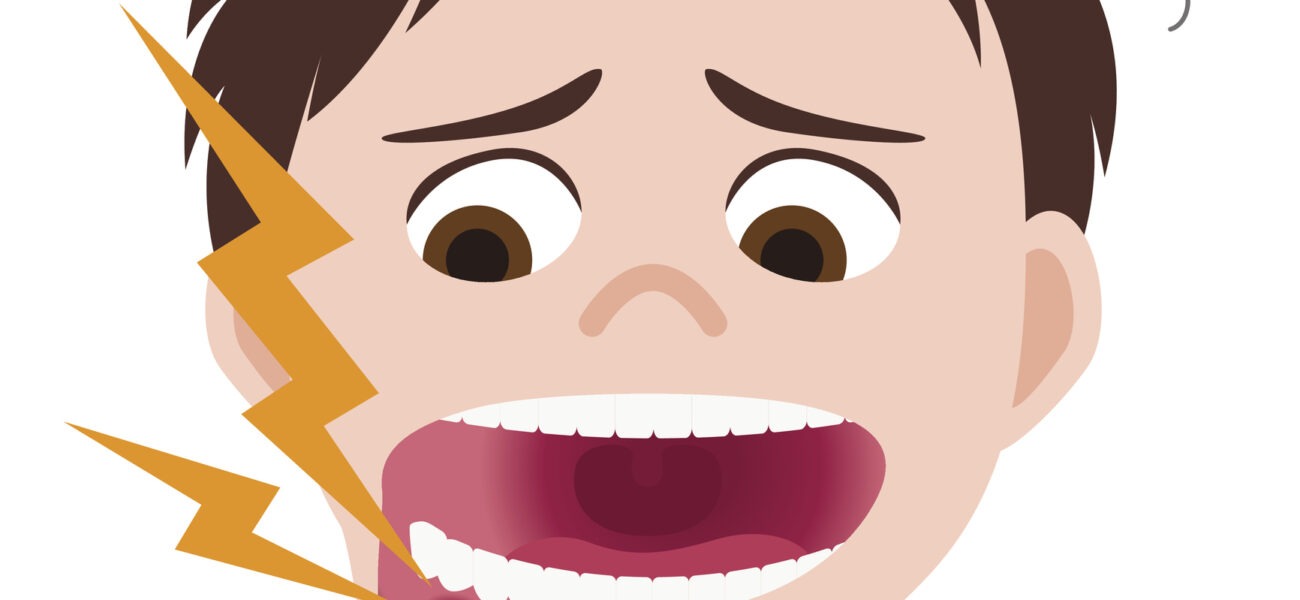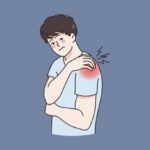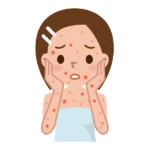Mouth sores are lesions that form on the soft tissues of your mouth, such as the lips, tongue, gums, cheeks, and roof and floor of your mouth. They can be caused by different factors, such as injuries, infections, cancer treatment, or mouth cancer. They can be painful and interfere with your eating, drinking, talking, and brushing your teeth. They usually heal on their own in 1 or 2 weeks, but some may need medical attention.
Types of Mouth Sores
There are many different types of mouth sores, depending on their appearance, location, and cause. Some of the common types are:
• Canker sores. These are small, round or oval ulcers that appear inside the mouth, usually on the inner cheeks, tongue, or gums. They are white or yellow in color and surrounded by a red border. They are not contagious and may be triggered by stress, hormonal changes, food allergies, or injuries. They can be very painful and make it hard to eat or talk.
• Cold sores. These are clusters of blisters that appear on or around the lips. They are caused by the herpes simplex virus (HSV), which can be transmitted through kissing or sharing utensils. They are also called fever blisters because they may occur during a fever or illness. They can be itchy and tingling at first and then break open and crust over. They usually heal in 7 to 10 days.
• Gingivostomatitis. This is a condition that causes inflammation and ulcers in the mouth and gums. It is usually caused by a viral infection, such as herpes simplex virus (HSV) or coxsackievirus. It is more common in children than adults and may cause fever, swollen lymph nodes, bad breath, and drooling. It normally clears up in 1 to 2 weeks.
• Thrush. This is a fungal infection that causes white patches or spots on the tongue, cheeks, roof of the mouth, or throat. An overgrowth of Candida albicans, a kind of yeast that naturally dwells in the mouth, causes it. It can affect anyone but is more common in people with weakened immune systems, such as infants, older adults, or people with HIV/AIDS. It can also be caused by certain medications, such as antibiotics or steroids.
• Hand-foot-and-mouth disease. This is a viral infection that causes blisters on the palms of the hands, soles of the feet, and inside the mouth. It is caused by coxsackievirus or enterovirus and is more common in children under 5 years old. It can also cause fever, sore throat, and loss of appetite. It normally clears up in 7 to 10 days.
• Leukoplakia. This is a condition that causes thick, white patches on the inside of the cheeks, gums, or tongue. It is more common in people who smoke, chew tobacco or drink alcohol. It can also be caused by irritation from dentures, crowns, or fillings. It is usually harmless but can sometimes be a sign of oral cancer.
• Oral cancer. This is a type of cancer that affects the mouth, lips, tongue, or throat. It can cause ulcers, lumps, or red or white patches that do not heal. It can also cause bleeding, pain, difficulty swallowing, or changes in voice. It is more common in people who smoke, drink alcohol, or have human papillomavirus (HPV) infection. Causes of Mouth Sores Mouth sores can have many different causes, depending on the type and location of the sore. Some of the possible causes are:
• Injury. Trauma to the mouth from biting, burning, braces, dentures, or dental work can cause sores or ulcers to form. They usually heal on their own in a few days.
• Infection. Bacteria, viruses, fungi, or parasites can infect the mouth and cause sores or blisters to form. Some examples of infections that cause mouth sores are strep throat, herpes simplex virus (HSV), candidiasis (thrush), and syphilis.
• Allergy. An allergic reaction to food, medication, or other substances can cause swelling, redness, or blisters in the mouth. Some examples of allergens that can cause mouth sores are nuts, shellfish, eggs, penicillin, and latex.
• Disease. Various diseases and conditions can affect the mouth and cause sores or ulcers to form. Some examples are autoimmune diseases (such as lupus or pemphigus), inflammatory diseases (such as Crohn’s disease or ulcerative colitis), metabolic diseases (such as diabetes or iron deficiency anemia), and cancer (such as leukemia or lymphoma). Symptoms of Mouth Sores Mouth sore symptoms vary depending on the type and cause of the sore. Some common symptoms that may accompany a mouth sore are:
• Pain. The sore may feel sore, tender, or throbbing due to inflammation or infection. Pain can make it difficult to eat, drink, talk, or brush your teeth.
• Itching. The sore may feel itchy due to irritation or allergy. Itching can worsen the sore by causing more damage to the skin.
• Burning. The sore may feel burning due to injury or infection. Burning can also be caused by spicy or acidic foods.
• Swelling. The sore may appear larger or puffy due to fluid accumulation or inflammation. Swelling can affect nearby structures such as nerves or blood vessels and cause numbness or tingling.
• Bleeding. The sore may bleed due to injury or infection. Bleeding can also be caused by brushing or flossing too hard. Diagnosis of Mouth Sores To diagnose the cause of a mouth sore, a doctor will usually perform a physical examination and ask about the history and symptoms of the condition. The doctor may also order some tests to confirm the diagnosis or rule out other possible causes. Some of these tests are:
• Swab test. This involves taking a sample of fluid or tissue from the sore using a cotton swab and sending it to a laboratory for further testing. This can help identify the type and cause of infection, such as bacteria, virus, fungus, or parasite.
• Biopsy. This involves taking a small sample of tissue from the sore using a scalpel or a needle and examining it under a microscope or sending it to a laboratory for further testing. This can help identify the type and cause of inflammation, abnormality, or cancer in the tissue.
• Blood test. This involves drawing a sample of blood from a vein and measuring the levels of certain substances in the blood that may indicate inflammation, infection, autoimmunity, or metabolic disorders. Examples of blood tests include complete blood count (CBC), erythrocyte sedimentation rate (ESR), C-reactive protein (CRP), rheumatoid factor (RF), antinuclear antibody (ANA), and glucose.
Treatment of Mouth Sores
The treatment of a mouth sore depends on its cause, severity, and impact on daily life. The main goals of treatment are to relieve symptoms, reduce inflammation, clear infection, and prevent complications. Some common treatments for mouth sores are:
• Medications. These can help reduce pain and inflammation in the mouth. They can be taken orally, applied topically, or injected into the sore. Examples of medications include nonsteroidal anti-inflammatory drugs (NSAIDs) such as ibuprofen (Advil) or naproxen (Aleve), acetaminophen (Tylenol), corticosteroids such as hydrocortisone cream or prednisone pills, antibiotics for bacterial infections, antivirals for viral infections, antifungals for fungal infections, antiparasitics for parasitic infections, immunosuppressants for autoimmune diseases, and biologics for cancer.
• Mouthwash. This involves rinsing the mouth with a solution that can help clean and soothe the sore. Examples of mouthwash include salt water, baking soda water, hydrogen peroxide water, chlorhexidine gluconate (Peridex), or benzydamine hydrochloride (Tantum).
• Oral hygiene. This involves brushing and flossing the teeth regularly and gently to prevent plaque buildup and infection. It also involves avoiding tobacco, alcohol, spicy foods, acidic foods, and other irritants that can worsen the sore.
• Surgery. This involves removing or destroying the affected tissue with a scalpel, laser, or liquid nitrogen. It can be used for conditions such as warts, moles, or cancer.
Home Remedies for Mouth Sores
In addition to medical treatment, there are some home remedies that can help ease mouth sores and improve comfort. Some of these are:
• Ice. Applying a cold pack or ice wrapped in a towel to the sore for 15 to 20 minutes several times a day can help numb the pain and reduce swelling. Do not apply ice directly to the skin or for longer than 20 minutes at a time, as this can cause frostbite or nerve damage.
• Honey. Applying raw honey to the sore can help prevent infection and speed up healing. Honey has antibacterial, anti-inflammatory, and antioxidant properties that can benefit the mouth.
• Aloe vera gel. Applying pure aloe vera gel extracted from the plant’s leaves to the sore can help heal and hydrate the mouth. Aloe vera has anti-inflammatory,
antibacterial,
and wound-healing properties that can help with various mouth conditions.
• Tea bags. Applying wet black or green tea bags to the sore can help reduce pain and inflammation. Tea contains tannins, which are natural astringents that can shrink tissues and relieve bleeding.
• Yogurt. Eating plain yogurt with live cultures can help balance the bacteria in the mouth and prevent thrush. Yogurt also contains probiotics, which are beneficial microorganisms that can boost the immune system and fight infections. When to See a Doctor Mouth sores are usually not a medical emergency, but they can be a sign of a serious condition that requires prompt diagnosis and treatment. Some situations when it is advisable to see a doctor for a mouth sore are:
• The sore is severe, sudden, or unexplained.
• The sore is accompanied by fever, chills, rash, weight loss, or other signs of infection or systemic illness.
• The sore is caused by an injury that results in bleeding, infection, or scarring.
• The sore persists for more than two weeks despite home remedies and OTC medications.
• The sore interferes with daily activities and quality of life.
Summary
Mouth sores are lesions that form on the soft tissues of your mouth, such as the lips, tongue, gums, cheeks, roof, and floor of your mouth. They can be caused by different factors, such as injuries, infections, cancer treatment, or mouth cancer. They can be painful and interfere with your eating, drinking, talking, and brushing your teeth. They usually heal on their own in 1 or 2 weeks, but some may need medical attention. In this blog post, we explored some of the common types of mouth sores, their possible causes, and how to treat them effectively.



